SAS raids and poetry at sunrise: Gold medal-winning coach’s bizarre Olympics tactics
TOKYO — From buses stormed by SAS soldiers to poetry at sunrise, these are the unusual tactics gold medal-winning coach Tim Walsh has used to inspire his Australian men’s sevens team.
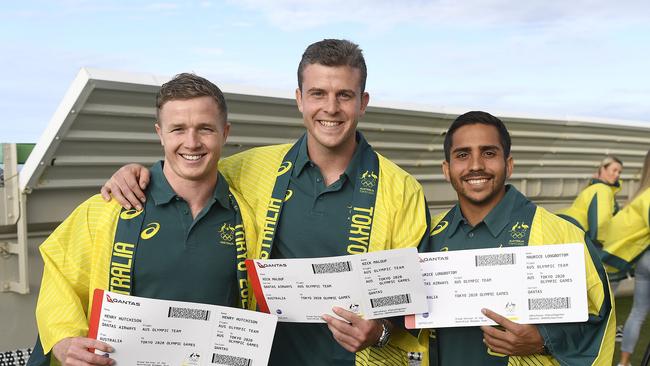
Olympics
Don't miss out on the headlines from Olympics. Followed categories will be added to My News.
TOKYO — From buses stormed by SAS soldiers to Olympic selections delivered through poetry at sunrise, these are the unusual tactics gold medal-winning coach Tim Walsh has used to inspire his Australian men’s sevens team.
Five-years-ago Walsh masterminded Australia’s women’s sevens golden run in Rio, inspiring a surge in popularity of women’s rugby and helping to lay the groundwork for the rise of competitions such as the AFLW and the NRLW.
Now he’s in charge of the men and on the first Friday of July, on the rooftop of their Townsville hotel, 12 of Walsh’s men climbed the stairs not knowing anyone else would be joining them.
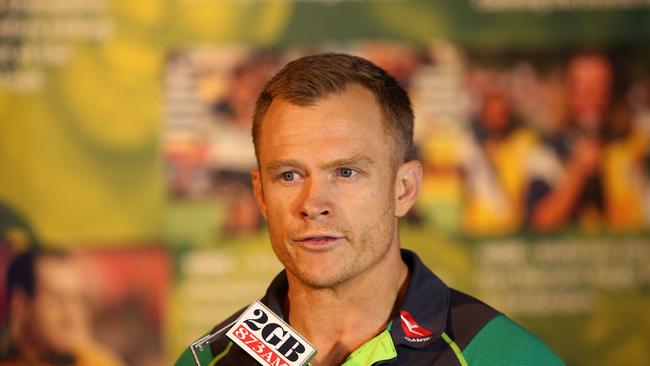
Walsh had sent them private messages to meet on the rooftop at 6:31am and to not tell anyone.
Maurice Longbottom — the star of the squad — was so concerned because of what he had experienced previously thar he asked his coach what he needed.
“A bit of courage,” Walsh responded.
As the sun rose over the Pacific Ocean, Walsh announced his squad for the Tokyo Games and delivered a handwritten poem to each member.
“Delivered to us from the home of Suntory, You come to us to share in the glory …. An Australian with the blood of a Fijian, You are also our resident comedian …. Your power is felt and your present is heavy, Back in Gold, welcome Samu Kerevi.”
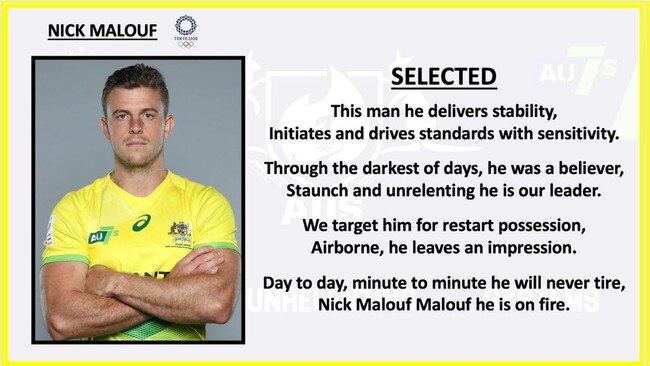
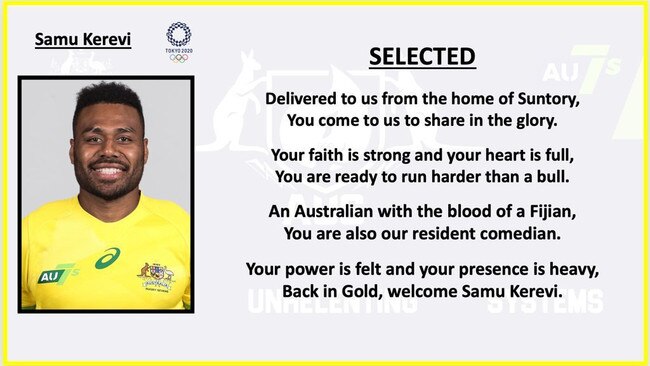
Almost three-years-ago, with Australia needing to beat powerhouse nation South Africa to progress through to the finals of the Sydney Sevens, Walsh pulled out his scrap book and started writing.
An hour before kick-off, Walsh delivered his first poem to the team.
“I was racking my brain about how to get them relaxed and happy,” Walsh tells News Corp. “I wrote this poem and at the end of it there was rapturous applause and laughter.
“We had a really good warm-up and we went out and beat them and from then on I thought, ‘Geez these poems work’.”
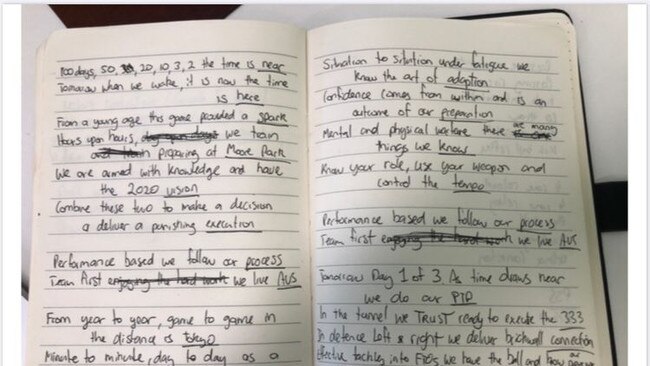
Again, Walsh pulled out the same scrap book ahead of their must-win Olympic qualifying final against Samoa in 2019.
“Let me give you a refresher, On how to handle pressure; Live in the now and play the moments, Regardless of our Oceania opponents …”
It worked a treat.
Now his most important poem is ahead of him.
Australia are seeded sixth for the Olympics and before the World Series came to a halt last year they had moved up to fourth in the world.
Walsh’s extraordinary tactics worked a treat ahead of the Rio Games.
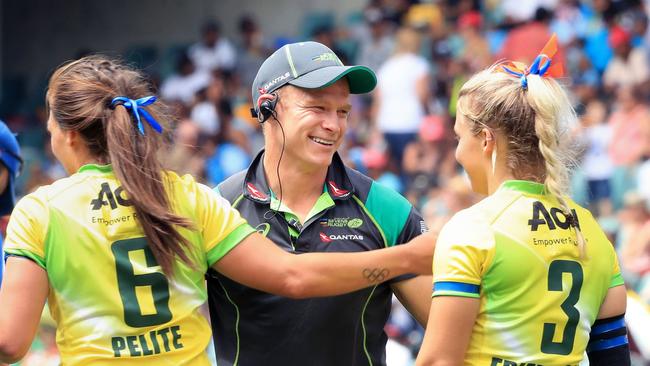
It’s a method he has continued since taking over the men’s program, with one of his first moves to have soldiers storm the team bus before dawn to see how the players reacted under pressure.
“They were woken up at a ridiculous hour, shifted in a bus and we stopped at army camp in Brisbane and a couple of SAS soldiers stormed onto the bus and started screaming and pulling them out with nothing,” he says.
“Ever since then, there’s been some fear and it’s about the gateway. It was the gateway to the sevens team. You’ve got to get through this to enter the season. It was the foundation.”
No one could have prepared anyone for Covid-19.
Perhaps, though, with Walsh’s curly methods, Australia’s sevens team is in the best shape to tackle whatever is ahead of them.
Preparation and leaving everything on the field is what Walsh demands. It is why he believes they can shock the world.
“They’re probably right (about being the underdogs),” he says. “We’re seeded sixth, we came into the tournament fourth. There’s just so many unknowns.
“But I can guarantee you, the way the team has prepared and handled the preparation for the Olympics is nothing short of professional and resilient.
“I think it all comes down to performing in the pressure moments and if we perform to our best, we’re every chance. That’s our priority, to perform to our best.”
Originally published as SAS raids and poetry at sunrise: Gold medal-winning coach’s bizarre Olympics tactics


